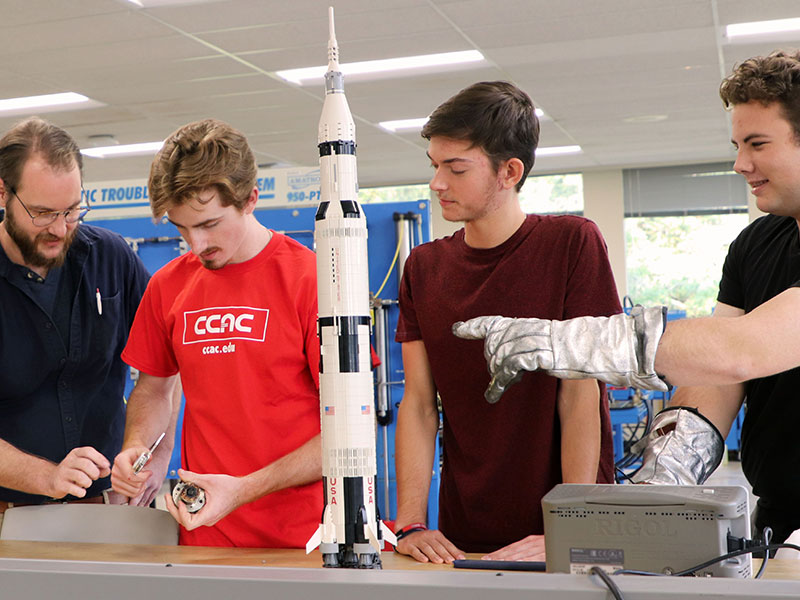CCAC Launches Student Competition that Will Send Experiments into Space

A CCAC Spaceflight Student Team from the college's Mechatronics Apprenticeship program, Digital Electronics Class. Pictured from left to right: Peter Humphrey, Christopher Beaver, Brennan Yohe, and Geordan Lubay.
Pittsburgh
The Community College of Allegheny County (CCAC) has been selected as one of only three community colleges in the nation to participate in the national Student Spaceflight Experiments Program.
Sponsored by the National Center for Earth and Space Science Education and the Arthur C. Clark Institute for Space Education, the program involves teams of CCAC students from various academic disciplines competing to design and present unique microgravity experiments, one of which will be selected to be sent to the International Space Station. There, during a scheduled mission, an astronaut will actually conduct the winning experiment and the experiment will be returned to the students for harvesting and analysis.
The first round of the competition will be held in November at the Moonshot Museum on the Northside, where CCAC student teams will present to a panel of space experts. The judges will propel three CCAC projects to the next round.
In late November, a national review board assembled by the National Center for Earth and Space Science Education will choose the winning CCAC project, which will be loaded onto a SpaceX rocket and sent to the International Space Station sometime in the summer of 2023. The winning student team will have the opportunity to present their results at the SSEP National Conference in summer 2023.
There are a total of 39 communities in the United States, Canada and Ukraine (K–12 and college-level) participating.
Our proposal was unique. Instead of limiting participation to students in STEM programs, we argued that community college students enrolled in a variety of programs can draw on their life experiences to propose unique experiments that will broaden access to spaceflight
So far, 15 faculty-led CCAC teams have expressed an interest in participating, including students from Business, Computer and Information Technologies, Mechatronics, Physics, Biology, the Skilled Trades and several Apprenticeship programs. There are also a number of teams of students in the first-year College Seminar course, collaborating across disciplines. “When I was a student, this was exactly the kind of opportunity I would have loved. It is amazing that CCAC’s students get to send a project into space,” said Patricia Donehue, Assistant Instructor at CCAC’s South Campus, who is mentoring several teams.
